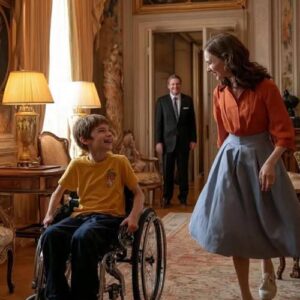This actress once graced the cover of Vogue and led primetime TV. Years later, she hesitated to take a role because she couldn’t trust her memory. Now, she accepts every challenge that comes with age.
In her lifetime, she has found success as a beauty icon, then as an actress, battled serious health issues, outlived two husbands, and embraced the joy of becoming a grandmother. She has tried her hand at business and more. Through it all, she has made clear that public opinion no longer holds any power over how she lives or looks.
Her priorities have shifted over the years. Gaining weight doesn’t faze her, and she refuses to starve herself or go on a diet. The lines on her face, she says, are part of who she is. She’s no longer trying to fit into sample sizes or smooth out wrinkles with cosmetic fixes. It’s a far cry from where her story began.
She was born into Hollywood’s inner circle, the daughter of a world-renowned ventriloquist who became famous through radio. Growing up in the shadow of her father’s fame, she was expected to meet the standards set by his legacy and her own appearance.
By the 1960s, she had become known for her reserved elegance, earning a reputation as an ice princess long before she ever spoke a line on screen. In August 1967, she appeared on the cover of Vogue, her image tied closely to American ideals of beauty.
But her early career offered limited roles, often centered on how she looked rather than what she could do. Over time, she began pushing back against the image that defined her debut. What followed was a steady shift from typecast ingénue to an actress known for timing, intelligence, and an ability to anchor complex roles.
By the late 1980s, she had fully redefined herself. No longer limited to fashion spreads or supporting roles, she took the lead in “Murphy Brown,” a sitcom that became a cultural landmark. Her portrayal of a sharp, unapologetic television journalist struck a nerve, earning her critical acclaim and solidifying her place in television history.
The role came at a time when strong, independent women were still a rarity in primetime, and the performer played it with confidence and bite. Off-screen, she matched her characters’ edge with outspoken views, particularly around feminism and the roles available to women in Hollywood.
Her performance won her five Emmy Awards and helped reshape expectations for women in television. Her later work continued this momentum. The actress took on major parts in films like “Miss Congeniality,” where she played the ruthless pageant director Kathy Morningside.
In “Bride Wars” and “Boston Legal,” she balanced comedy with moments of grounded authority. These roles came to define her second act—less about image, more about talent and screen presence. The first major shift in her personal life came in 1980, when she married French film director Louis Malle at age 34.
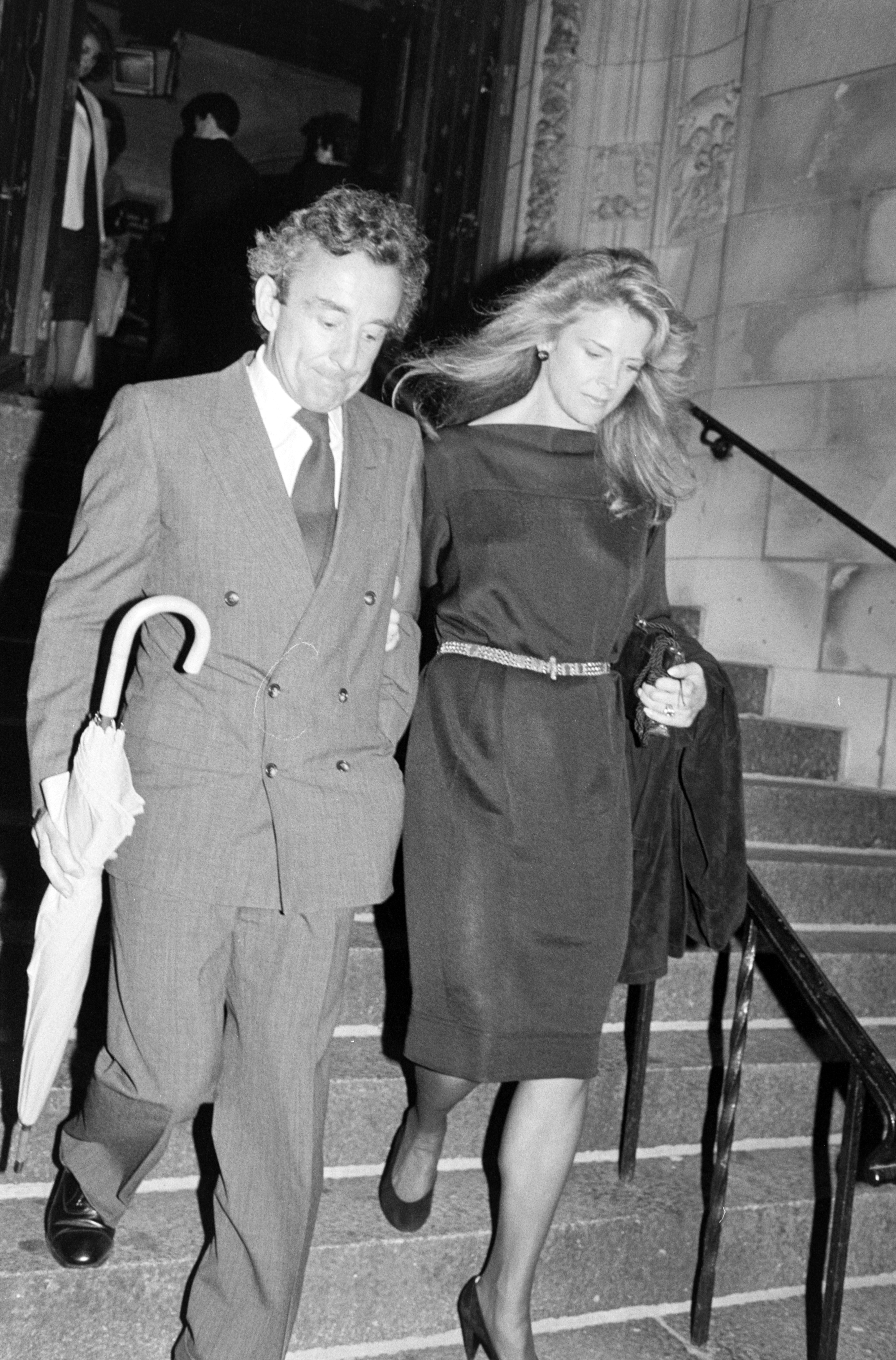
The marriage lasted 15 years, until Malle’s death from lymphoma in 1995. Their daughter, Chloe, was born in 1985, when the former model was 39. Widowed at 49, she remained largely private during the years that followed, focusing on motherhood and her career.
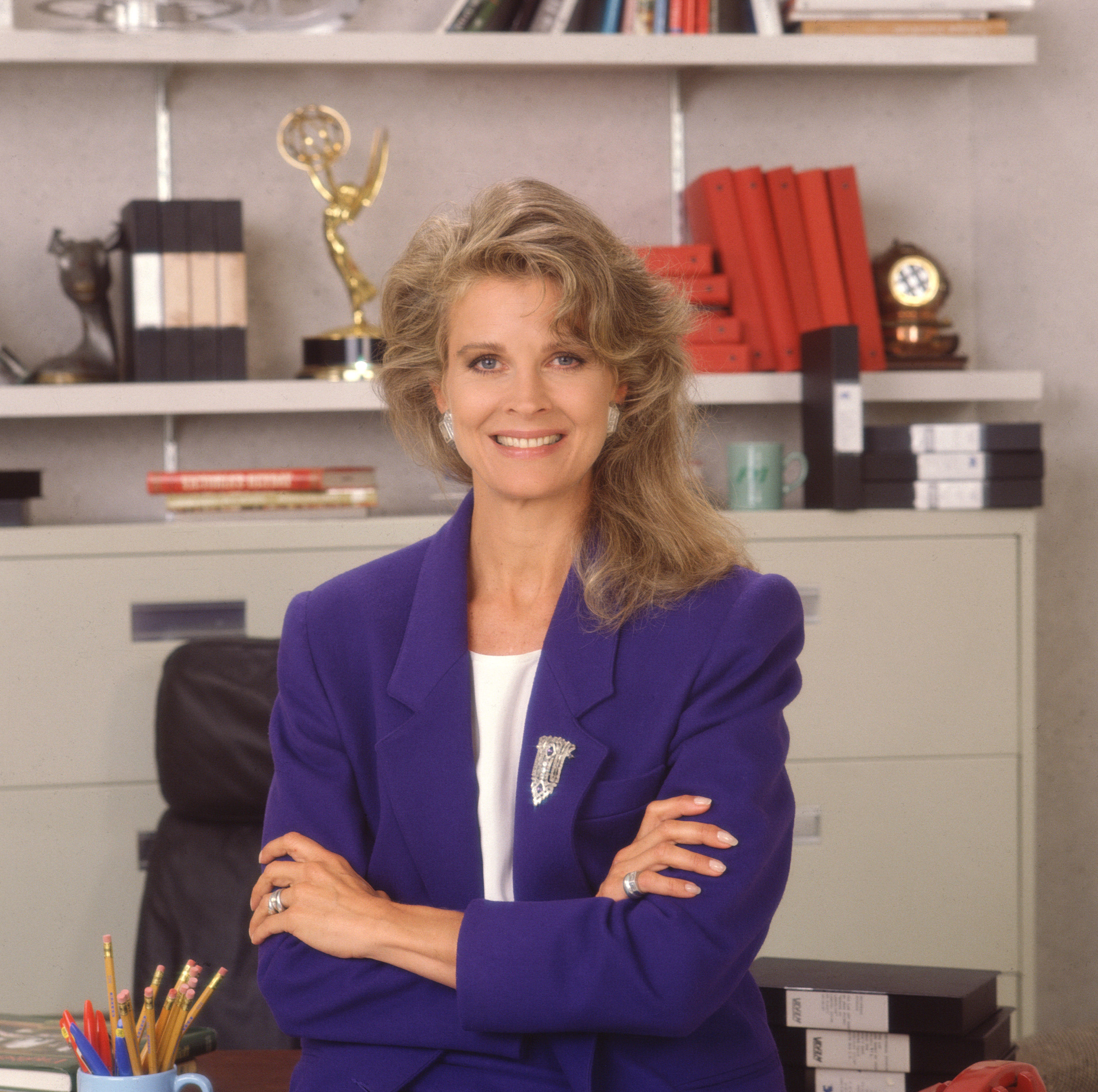
In 2000, she remarried, this time to New York businessman and philanthropist Marshall Rose. In the years that followed, the actress stayed active in film and television.
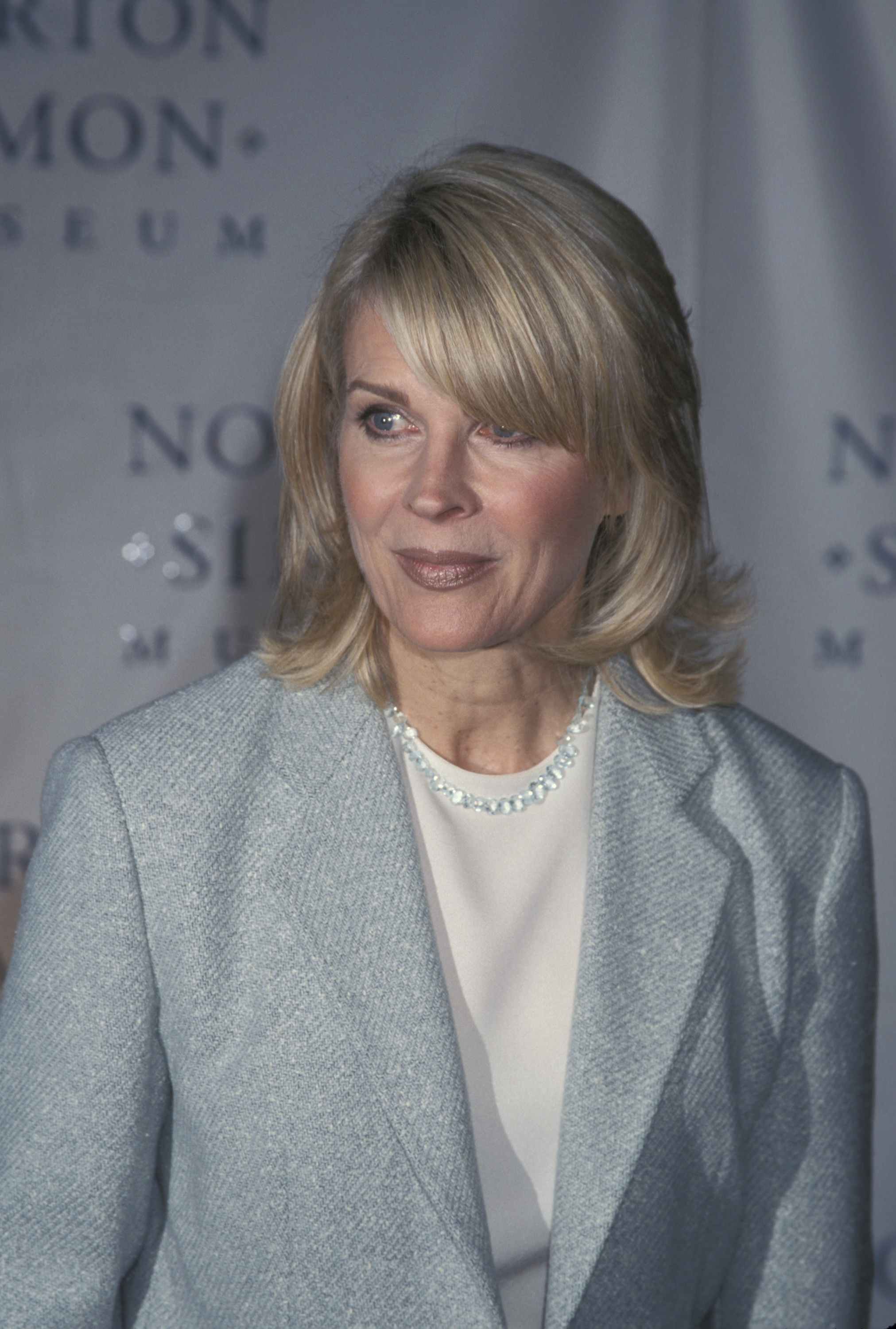
The actress is photographed during the opening of “The Art of Norton Simon” at Norton Simon Museum in Pasadena, California in 2000 | Source: Getty Images
In 2006, during filming for “Boston Legal,” the performer suffered a minor stroke. She returned to work after just two weeks but later admitted she had initially concealed the diagnosis. “I just don’t want it to be a liability,” she said, explaining her reluctance to make the news public.
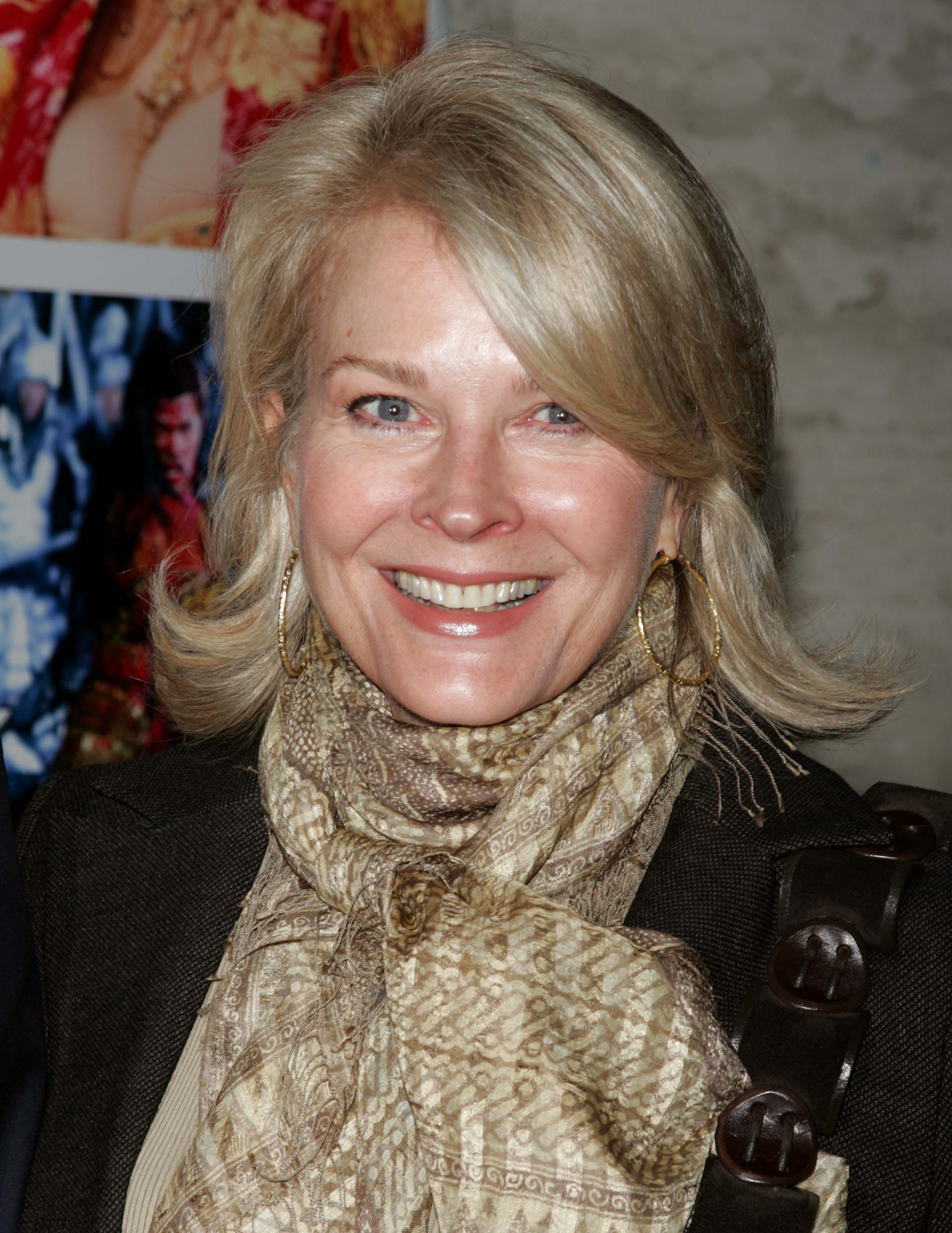
Years later, she revealed there were lasting effects from what she called “a frightening cluster of mini strokes” that began in her early 60s. “My memory is just—” she revealed in a separate conversation in 2012. “It’s not quite the same.” Five months before this interview, she had broken her pelvis during a bike ride.
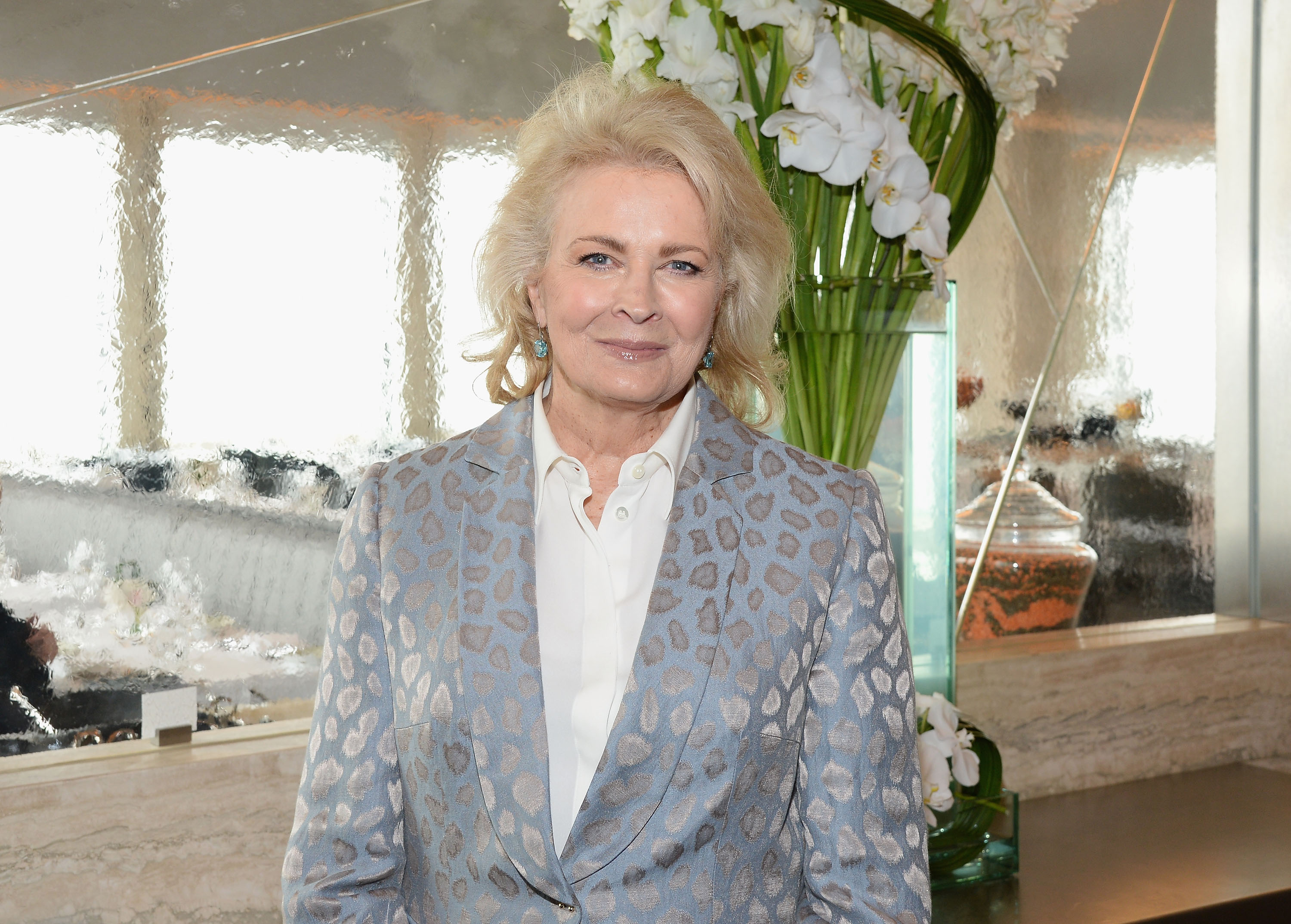
The actress and former model at The Rainbow Room on May 19, 2012 in New York City | Source: Getty Images
The injury made her more aware of her physical vulnerability. “Now I can fall and I’ll break,” she realized. When producer Jeffrey Richards approached her for a role in the Broadway revival of “The Best Man,” she was hesitant.
Her role was that of a betrayed political wife, a character navigating public scrutiny and private bitterness. The part required nightly monologues and fast-paced exchanges, elements that made her uncertainty about remembering lines even more daunting.
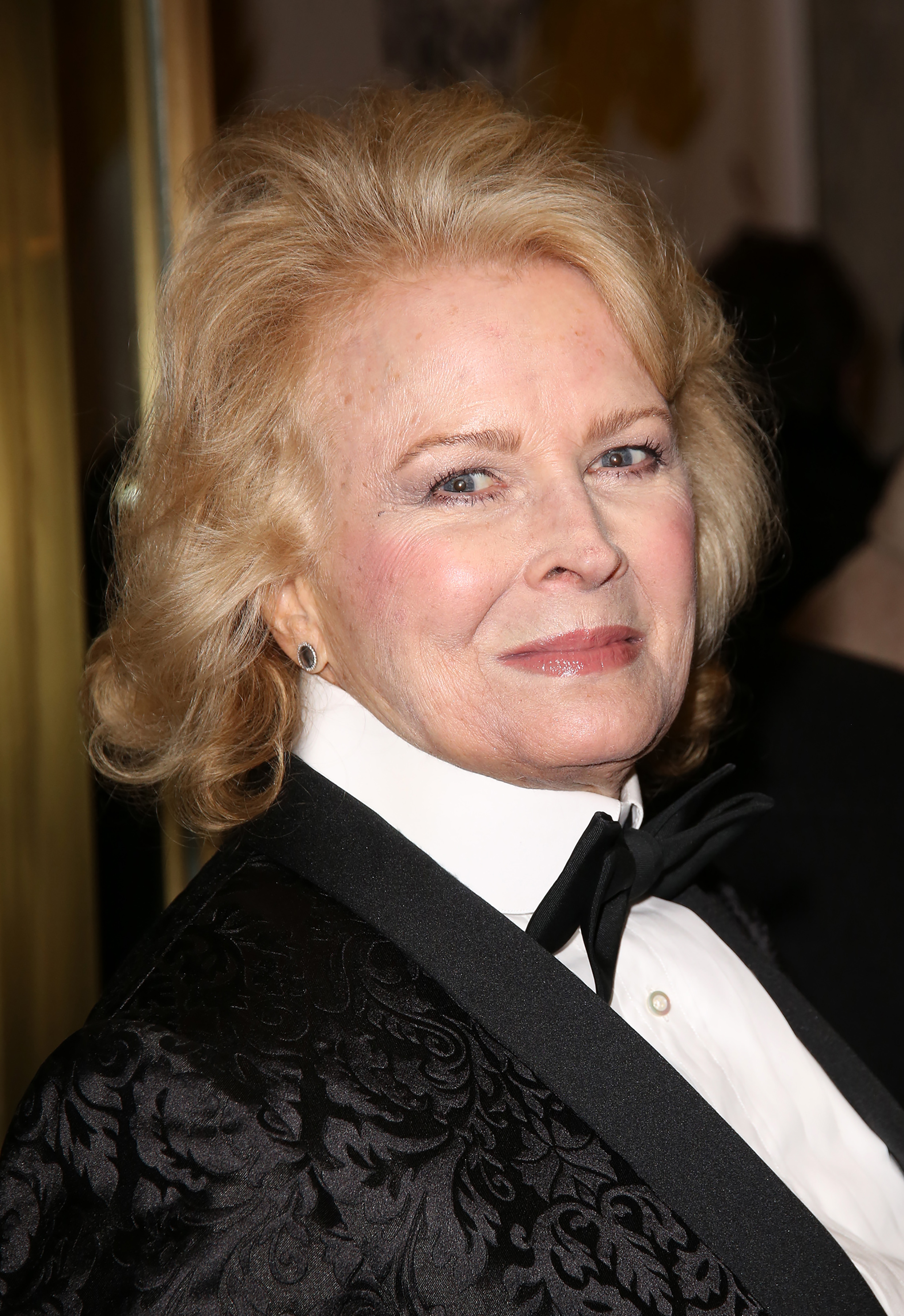
“My concern with theater was no retakes,” she said. “I had no confidence in my memory, and I didn’t want to leave my husband.” As opening night neared, her doubts intensified. After the show opened, she said she was grateful just to have made it through.
In the years that followed, her focus shifted further away from maintaining appearances and toward accepting the physical realities that had become part of her daily life. The actress stopped trying to reverse what aging had already made clear, and in 2015, she addressed it directly in print.
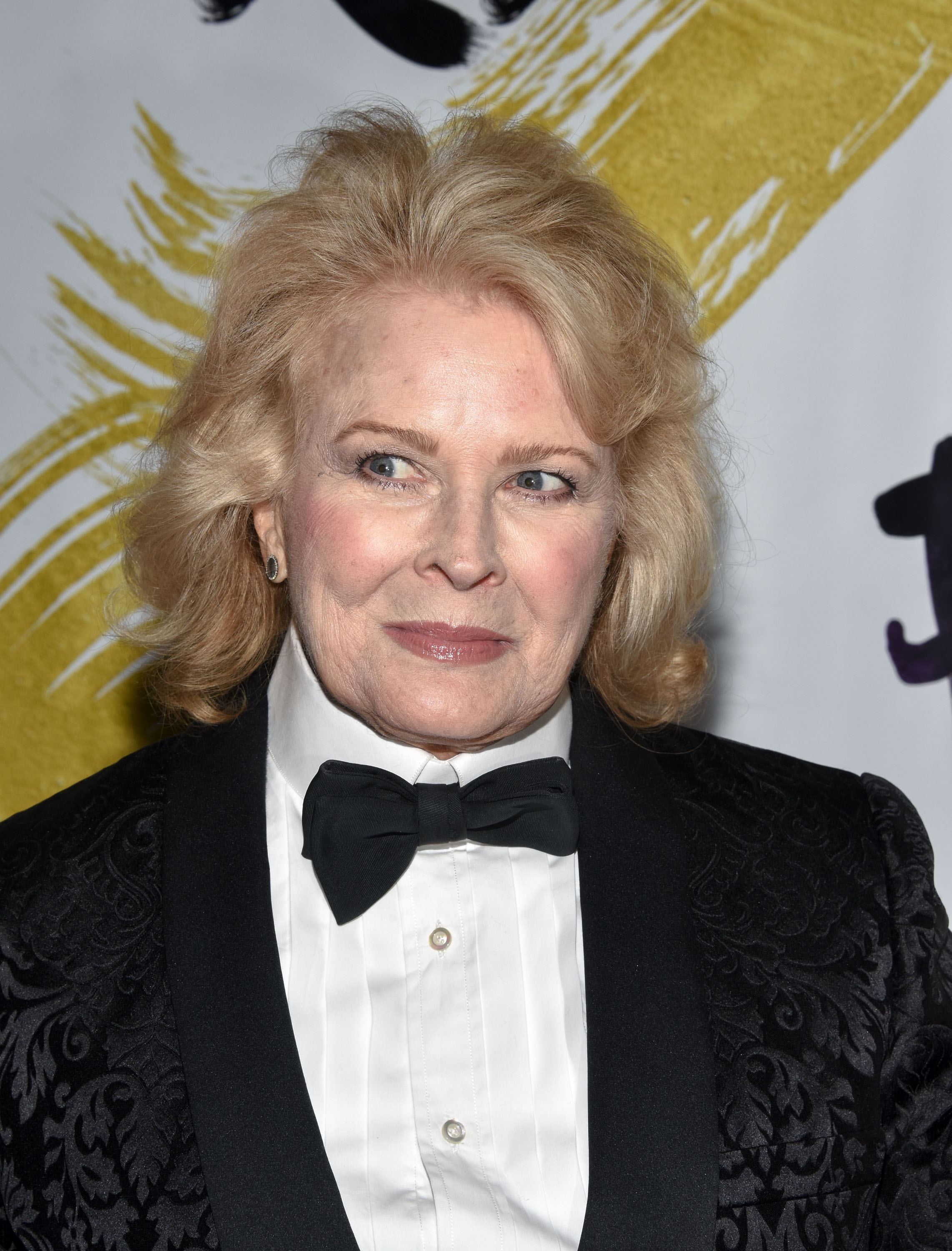
In an excerpt of her memoir “A Fine Romance,” obtained by Today magazine, she wrote, “Let me just come right out and say it: I am fat.” According to her, the weight gain had built up over 15 years. “I live to eat. None of this ‘eat to live’ stuff for me.”
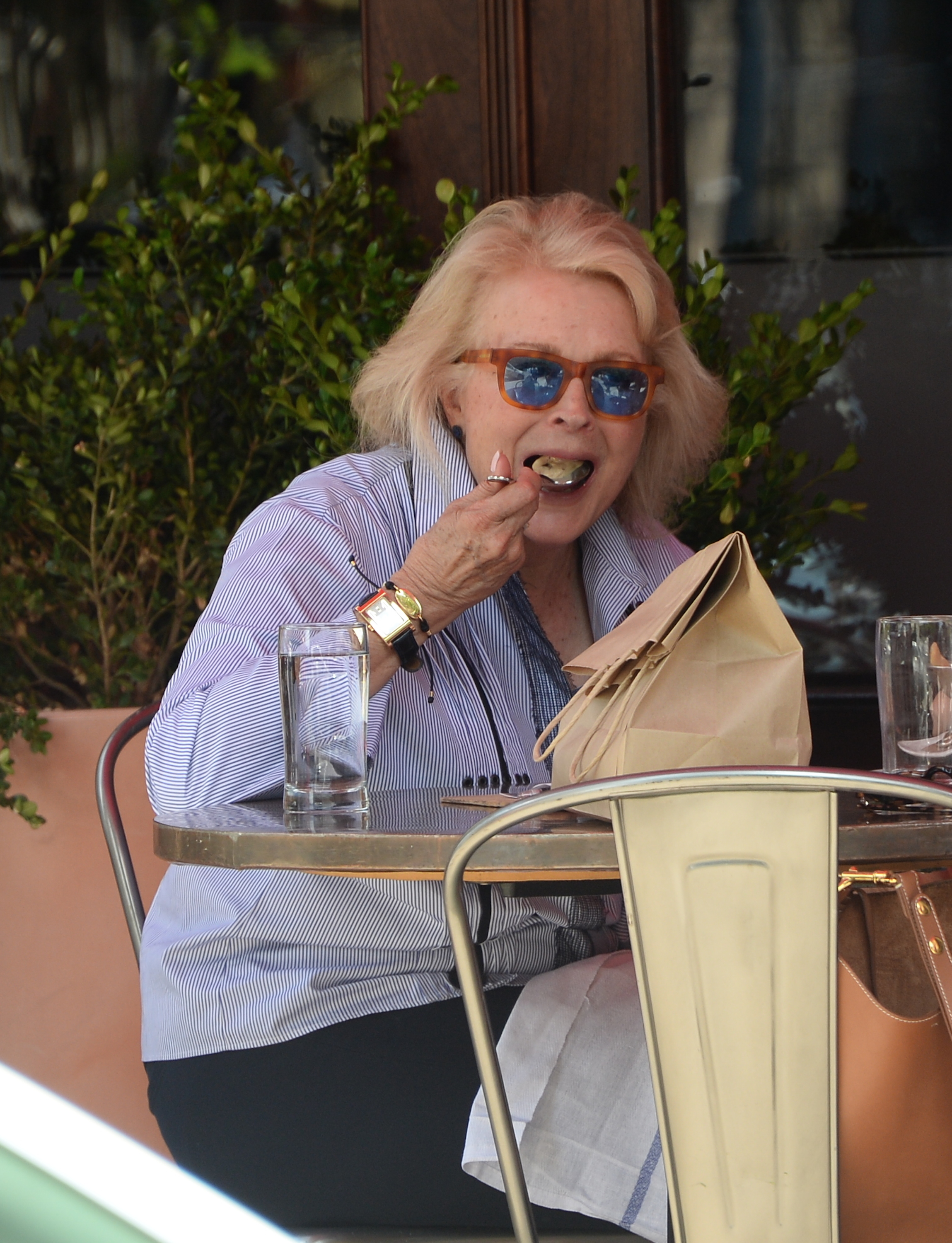
The actress is seen eats lunch at Locanda Verde Restaurant on June 10, 2015 in New York City | Source: Getty Images
An excerpt that Page Six obtained shows she didn’t hide her habits or make excuses for them. “I am a champion eater. No carb is safe — no fat, either,” it reads. She recalled one dinner party where she and her husband shared bread and chocolate ice cream. A woman nearby looked at her, clearly unsettled. “I don’t care,” she thought.
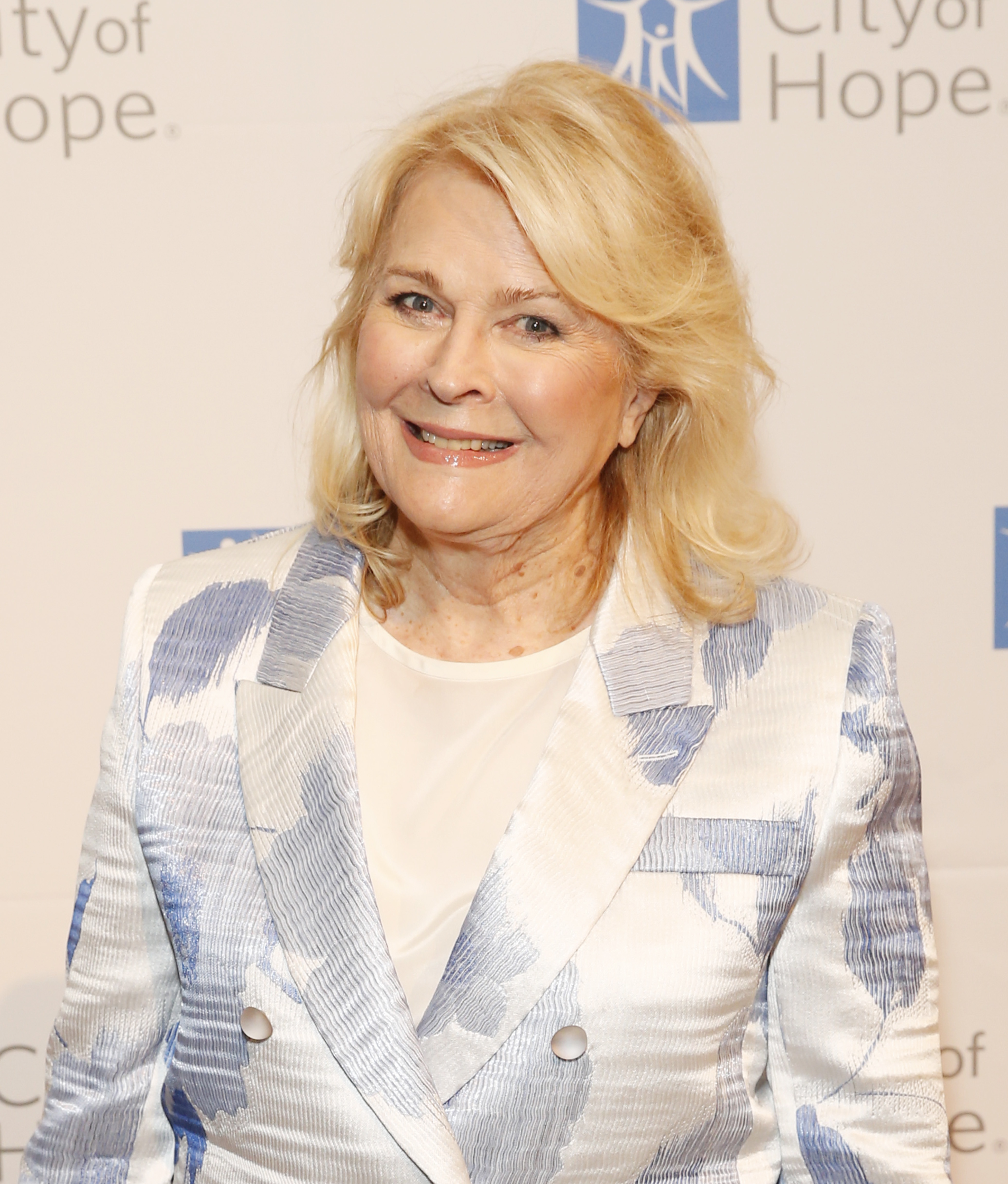
There were other trade-offs she acknowledged. Her peers often faced pressure to choose between preserving their face or their figure, but her choice was clear. “Dieting is out of my purview,” she wrote. “I crave cookies… all the things that dilate my pupils.”
She was also blunt about how others around her managed to stay thin. “They maintain their weight by routinely vomiting after major meals consisting of a slice of steak or a filet of fish,” penned the actress. “I am incapable of this.”
The only cosmetic change she tried came in the form of injections. She said she fainted the last time she had them. “I’m so pain-averse,” she shared. By 75, she described what she saw in the mirror without hesitation.
“I have these chasms on my lips, and I have a waddle, which is why I wear a turtleneck. But at least people can see how you look when you get older,” she stated. “I just thought that if I’m going to get older, I would like to do it with credibility.”
The actress is none other than Candice Bergen. Photos of her shared online in recent years have drawn supportive comments from fans who continue to follow her work and public presence. In one image she posted to Instagram, fans left messages that praised not just how she looked but what she represented.
“You look fabulous ❤️,” one wrote. Another commented, “I love this face!” A third added, “Beautiful, inside and out.” Though she maintains a public persona, her most cherished moments are with her family, which expanded in 2020 when her only child, Chloe Malle, gave birth to a son, Arthur Louis Albert.
It was her first grandchild, and the news brought her a different kind of joy. She was described as “exuberant” and, by her own account, couldn’t wait to be a grandmother. “We’re just over-the-moon excited,” she told People magazine before Arthur arrived. Chloe, a contributing editor at Vogue, married Arthur’s father, Graham McGrath Albert, in 2015.
After the baby was born, Bergen began collecting books for him—enough, one report said, to last him until age five. She also ordered clothes and kept her distance when needed. “She’ll be there for her when Chloe asks,” one source noted, “but she won’t meddle or tell Chloe what to do.”





